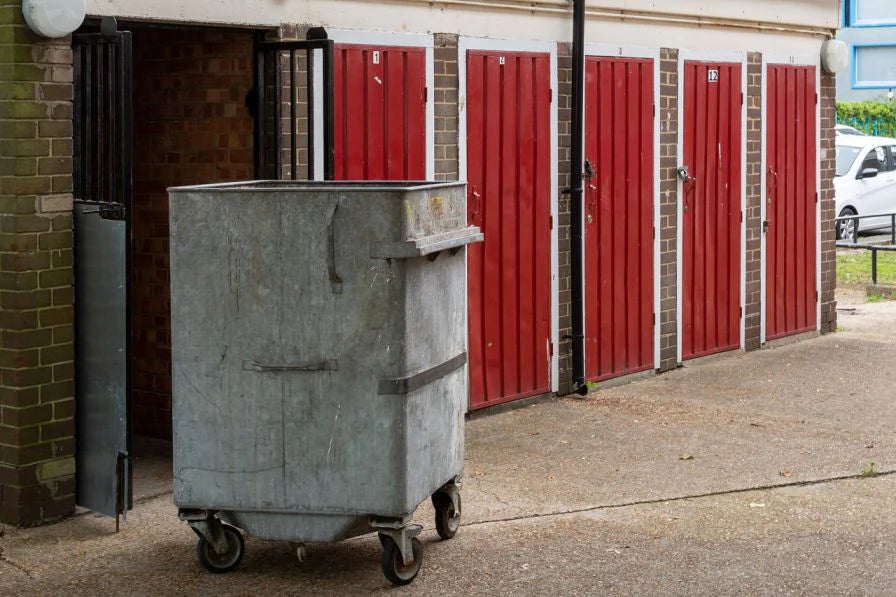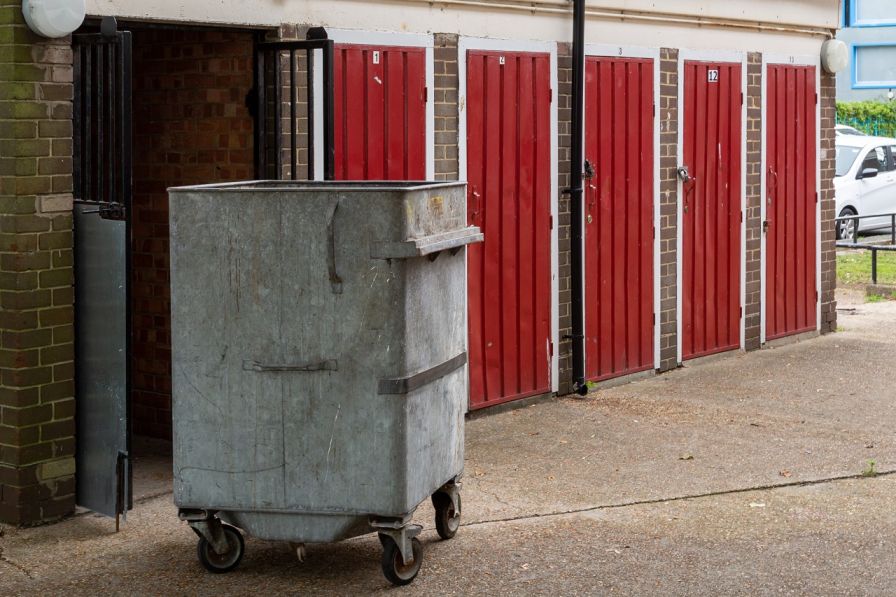OR
Express Checkout
We guarantee to have the lowest price! Find the same bin for a cheaper price and we will beat it!

No Wheelie Bin Noise Please, We’re British
Gone are the metal wheelie bins of the old days, where the familiar clash and clatter of bin collections would wake people at the crack of dawn, but even though we have plastic bins these days, there’s no getting away from it, bin collection is still a noisy business.

Recording noise on your wheelie bin
Take a look at your bin next time you put it out for collection, and see if there’s a decibel level marked on it. It might be on the side or the top, and it might say ‘99dB’, accompanied by a picture of an alarm.
Why is this on your bin?
If you do find the mark on your bin, it’s all down to an EU ruling which was designed to minimise the noise of early morning bin collections.
EU directive 2004/14/EC states that people should know how noisy outdoor equipment can be, and restricting how noisy it can be in some cases. The directive also covers items like lawnmowers, power tools and generators, as well as wheelie bins!
The decibel level on the bin shows the maximum noise level the bin can make, whether that’s due to the lid being slammed, or it being dragged along a pavement. As a guide, normal conversation is usually about 60 dB, and a lawnmower is about 90dB.
The problem of noise pollution
Most of us are used to living with noise, especially if we live in towns or cities. Whether it’s loud music, traffic noise, or barking dogs, it’s just part of modern life. But when noise prevents you from sleeping, or gives you a headache, it can legally be called noise pollution.
The definition of noise pollution is excessive noise or unpleasant sound which disturbs the natural balance of life.
What causes noise pollution?
Industry
Most industry relies on machinery, which tends to make a lot of noise.
Poor urban planning
Houses that are built too close together, and which are situated close to airports, train lines, or other transport hubs can mean that noise becomes a real problem.
Social Events
Parties, pubs, clubs, and other entertainment venues can create a lot of noise pollution. This is a constant irritation for people living close by.
Transportation
There are increasing amounts of vehicles on the road, more airport runways being built, and more train services running. All of these can produce large amounts of noise.
Construction
An increasing population needs more buildings and more roads, and this can be very noisy, especially if heavy excavation is involved.
Housework
We are surrounded by gadgets and appliances that produce noise, and we don’t even have to leave the house! Whether it’s the washing machine, or vacuum cleaner, it’s all noise.
Excessive noise can affect our health, the environment, and wildlife.
What are the effects of noise pollution?
Hearing problems
Our ears can take in a range of sounds without being damaged. But man-made noises such as horns, pneumatic drills, and vehicles may be too loud for our comfortable hearing range. Constant exposure to noise can damage our ear drums and can cause loss of hearing.
Sleeping disorders
A noisy environment can disrupt your sleep, which leaves you feeling fatigued and makes you susceptible to other health problems.
Heart problems
Research has suggested that excessive noise can increase blood pressure and heart rate, and it can also disrupt normal blood flow.
It can affect wildlife
Animals rely on sounds such as mating calls and other cues to ensure their survival. When man-made sounds drown these out, it can spell trouble.